Martin Scorsese Recommends: 8 Director's Favorite Movies Everyone Should Watch
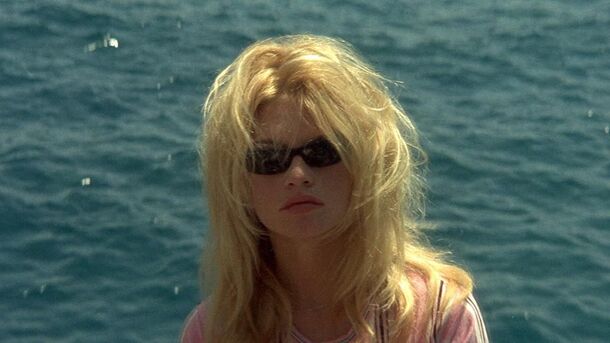
These masterpieces have all become part of the modern master's DNA.
Martin Scorsese is a brilliant director and a passionate guardian of cinematic heritage. To him, cinema is a living organism – a dialogue between directors from different eras and countries.
This list presents his personal selection of movies, and it's not just a list of great films – it's a key to understanding Scorsese's work.
1. 'Contempt', 1963
IMDb Score: 7.4/10
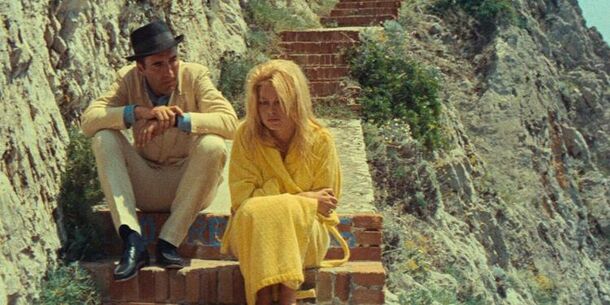
In 1963, Jean-Luc Godard directed Contempt, starring Brigitte Bardot, with a massive budget estimated in the millions.
The plot follows Paul, a writer of scripts for exploitation films. He soon takes on the task of reworking Homer's Odyssey. On the advice of an American producer, he plans to transform the epic poem into an action flick.
In Contempt, Godard satirizes the commercialization of cinema. The movie delves into the intricacies of filmmaking and expresses the sadness of the futile search for an ideal that cannot be realized in real life or recreated in cinema.
2. '8½', 1963
IMDb Score: 8.0/10
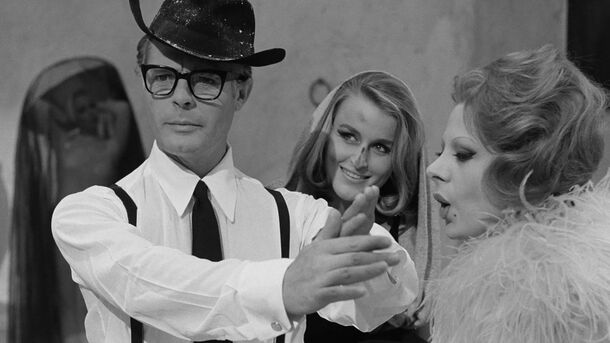
For Scorsese, Fellini is a god of cinema, and 8½ is the film that transformed his perception of this art. Scorsese is captivated by the story of a director's creative crisis and the unique blend of freedom and formal rigor where reality and fantasy merge.
Under pressure from his success after La Dolce Vita, Fellini transformed it into the content of the movie. Scorsese has found himself in a similar situation more than once and has returned to 8½ each time as a guide – instead of escaping the crisis, he makes it the subject.
3. 'Ugetsu', 1953
IMDb Score: 8.1/10
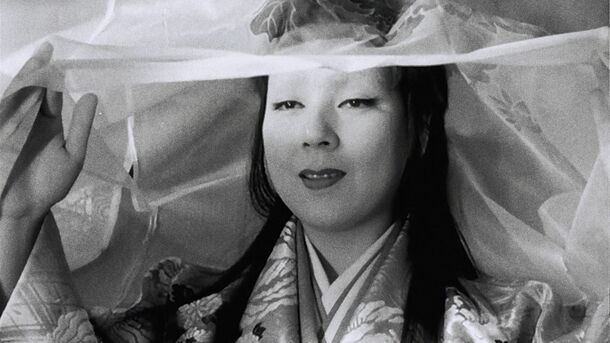
Against the backdrop of 16th-century Japanese civil war, two peasants – Genjuro, a potter, and Tobei, who dreams of military glory – escape poverty: one in pursuit of money, the other of samurai status.
Their wives remain in the devastated village. By the end of the movie, war, ambition, and male vanity have turned the world around them into a wasteland.
Scorsese considers Kenji Mizoguchi to be among the greatest directors and places his post-war works at the pinnacle of cinema. Ugetsu was Martin Scorsese's first Japanese film, opening him up to a whole new cultural horizon.
4. 'The Leopard', 1963
IMDb Score: 7.9/10
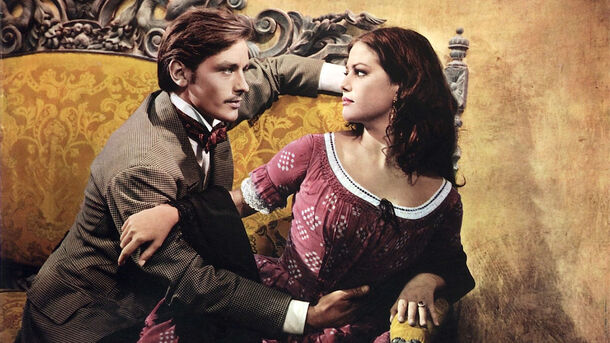
In May of 1860, a civil war broke out in Italy. It pitted republicans and supporters of Garibaldi against adherents of the ruling Bourbon dynasty. Prince Fabrizio di Salina, a Sicilian feudal lord, viewed the changes with a sense of understanding and pessimism.
Therefore, when his young nephew Tancredi first joins the Garibaldi rebels and then becomes an officer of the King of Savoy, Prince Salina does not condemn him.
Prince Salina himself did not want to actively participate in the political struggle. He recognizes the inevitability of the great changes taking place and senses that the time of "leopards" and "lions" is passing.
5. '2001: A Space Odyssey', 1968
IMDb Score: 8.3/10

Stanley Kubrick's groundbreaking sci-fi film has inspired many modern directors. Martin Scorsese is certainly no exception.
According to Scorsese, Kubrick changed cinema through not only visual effects, but also a new approach to narrative logic and continuity.
Scorsese said that no one had ever immersed viewers in a world so different from their own, especially in commercial cinema. Kubrick didn't just have viewers watch – he had them exist alongside the astronaut in the void of space.
6. 'Paisan', 1946
IMDb Score: 7.6/10

For Scorsese, Paisan is more than just a masterpiece of cinema – it's part of his personal biography. He first saw the movie in the 1940s on TV in his parents' apartment.
He was most impressed by the reaction of his grandparents, who were shocked by the fate of the Italy they had left behind. To him, their emotions were as much a part of the film as Roberto Rossellini's images.
Paisan is the second part of Rossellini's war trilogy, a series of six short stories about the collapse and rebirth of Italy. Its aesthetic, based on improvisation, natural light, and nonprofessional actors, shaped Scorsese's understanding of cinema.
7. 'The Red Shoes', 1948
IMDb Score: 8.1/10
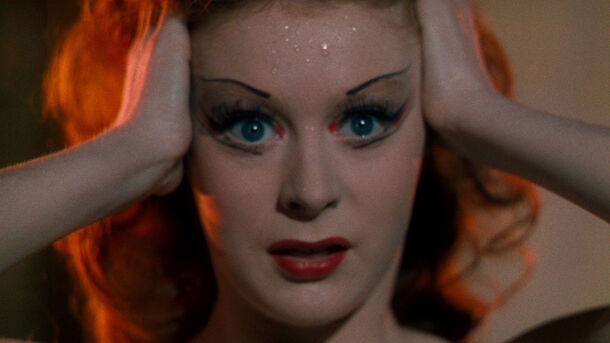
Martin saw the movie when he was nine or ten years old. His father, who worked in New York City, took him to see it, which was completely atypical compared to the movies they usually went to see together.
Since then, Scorsese admits that he has rewatched The Red Shoes about once a year, and each time, he discovers something new.
The famous impresario Boris Lermontov is obsessed with ballet. He longs to find his muse and bring her to the top. He finds such a muse in the young dancer Victoria Page.
Lermontov casts her as the prima ballerina in his new ballet, The Red Shoes. She becomes a star, but there is only one Lermontov's demand she can't satisfy – to give up love for the sake of her career.
8. 'The Searchers', 1956
IMDb Score: 7.8/10
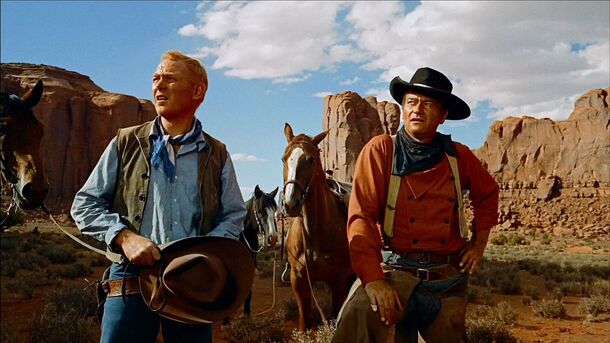
Set in the Wild West after the Civil War, the movie follows cowboy Ethan Edwards as he rides out to avenge his murdered family and spends decades searching for his kidnapped niece. However, the more he searches, the clearer it becomes that his motives are not noble.
A Confederate, Ethan hates the Comanche Indians so much that he learns their beliefs just to insult them after death, shooting his fallen enemies in the eyes.
Unable to live among Whites or Indians, he finally finds Debbie as an adult and is almost ready to kill her for becoming one of them.
